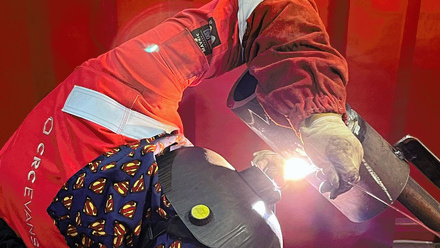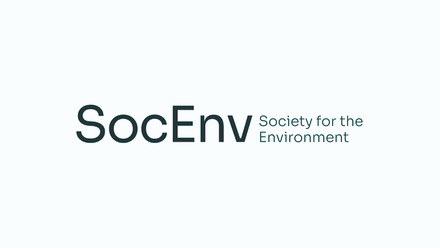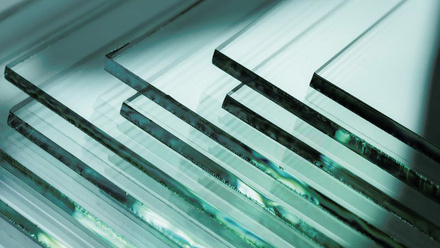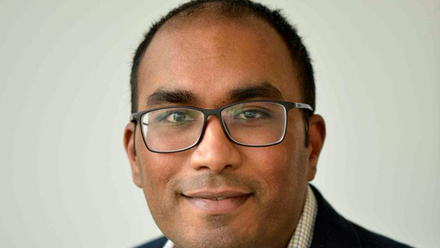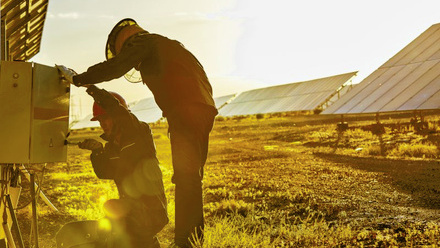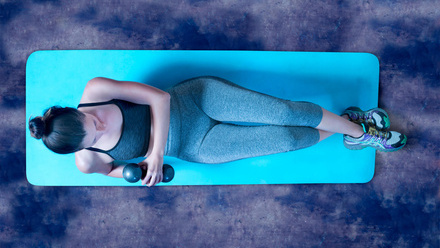Telling stories - delving into science communication
Scientist and consultant Laurie Winkless has written two books and many scientific articles. Alex Brinded spoke to her about being a science communicator and what she has learnt along the way.
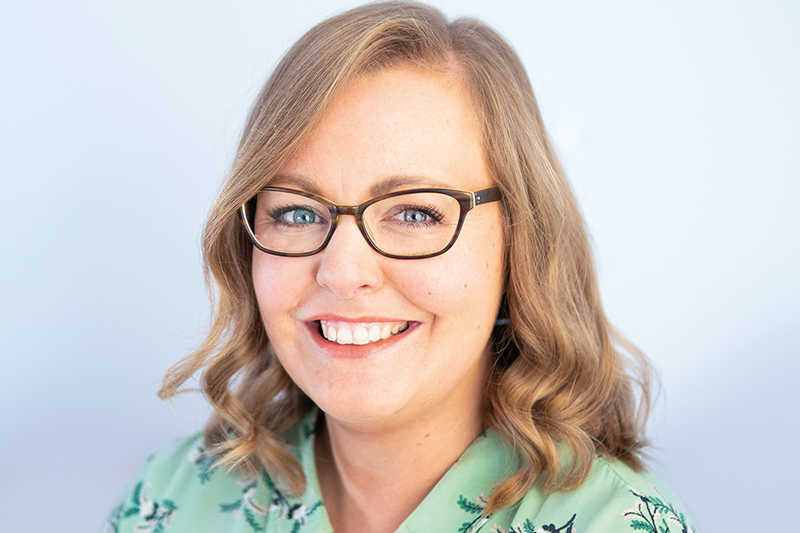
It is early morning in Wellington, New Zealand, and late evening here in London, when I catch up with Physicist, Author, Science Communicator and self-confessed 'talker' Laurie Winkless.
I conclude that she must be a morning person to appear so enthusiastically before breakfast for an in-depth interview about her life and work. If she is actually a night-owl, then Kiwi coffee must be very good.
Gregarious, charming, fun and funny, Winkless is a person of broad interests with a real passion for her subject and a zeal for learning. She is the science teacher you wished you had at school, and the academic researcher you would be thrilled your career was pinned to. Easy to talk to and clearly collaborative – she has made a career of working well with others and helping to tell scientific stories. Of paramount importance to a fellow science writer, she is an excellent interviewee.
Born and raised in Dundalk, Ireland – halfway between Dublin and Belfast, and close to the border with Northern Ireland – Winkless left her home nation after finishing an undergraduate degree in Physics with Astrophysics at Trinity College, Dublin. She then stayed in London, UK, for nearly 12 years before moving on to Wellington in 2016.
'I feel like I became a fully-fledged human in London,' she reflects fondly on the city. 'I feel like I grew up, in the sense that I did my Master’s there, I had my first research job at the National Physical Laboratory (NPL), and I met my now husband at NPL. We even returned to London to get married in September 2018.'
Her wedding was a humanist ceremony at the Royal Society of Chemistry. 'Science is really important to both of us,' she asserts. 'We live and die by it. We talk about science and engineering constantly in this household.
'Neither of us are religious, so we wanted to get married somewhere that would make sense to us.'
Fortunately, the door was equally open to non-chemists. 'We did joke about it because Richard is also a Physicist. We just felt very lucky that we got to get married there. And we sprinkled nerdiness throughout the whole thing.'
That included lab beakers for flowers, Lego at the table instead of wedding favours, and the bride’s arrival was heralded with music from the Star Wars medal ceremony.
In a galaxy far, far away…
Winkless’ Master’s in Space Science at University College London (UCL) was 'a really brilliant programme', she says, fulfilling a childhood dream. 'All kids who are interested in science are generally interested in Space. For a long time, up to university, I really wanted to be an astronaut.'
While doing her four-year undergraduate degree in Dublin, she in fact won a scholarship in 2004 to go to the Kennedy Space Centre in Florida, USA. The Irish Government had sponsored 14 university students to spend the summer doing courses at Florida Tech, meeting astronauts and NASA scientists, and even learning to fly.
The group also saw the Messenger Launch. 'I was so lucky. It was an incredible experience, we got right up close to one of the space shuttles. Literally, right underneath it, as they were working on it.'
That experience it seems laid the foundation for her future career in science communication. 'It was a big deal – the scholarship – and when we came back we did little bits of radio, and they encouraged us strongly to go back to our schools and use that opportunity to talk to our teachers and our schools about our experience.
'Arguably, that was actually the first time I’d strayed into communicating science and I didn’t feel qualified. That was probably when I started to think about the fact that if I’m going to become a scientist, I have a responsibility to talk about science.
'Bit of a chancer'
As well as an application to UCL for a Master’s, she also applied to the NPL for a job, on advice from her undergraduate supervisor who knew her interest in applied research.
'The one thing that my Astrophysics undergraduate degree taught me is that I don’t want to do things I can’t touch. I didn’t enjoy the data processing…I’m much more hands on.'
Winkless was convinced, however, she wouldn’t get into either programme, because 'I knew nothing. I had just finished my degree'.
If this seems at odds with being the youngest scholarship winner on the NASA programme a year before, it is because of the high standards Winkless sets herself. 'I didn’t do as well in my degree as I should have. I’ve always been bad at exams. I do extremely well in continuous assessments because I’ve always had a very high work ethic. At the time, I had really poor mental health, around studying. I put a lot of pressure on myself. I still do. In my undergraduate, it really got to me, I had a tough time.
'But ‘I am a bit of a chancer’ as Irish people would say. I will try anything. If I want to interview someone, I will just contact them. I don’t have any shame. I think ‘what’s the worst people can say’. They can say no, that’s fine. And maybe I haven’t explained things properly. And I’ll probably ask them again.'
Ultimately, landing an offer for both, she chose her first option and left the door open with NPL.
Proactive promotion of voices
Contacting NPL nine months later, and after a lunch and a walking tour of the labs, she started almost immediately after finishing the MSc.
She knew there would be some good opportunities to learn. 'I am very motivated. I wanted to learn from other scientists – I knew that I’d be surrounded by people who have been doing their research for longer than I had been alive. So that was really exciting to me.'
Winkless worked on a European research project using self-assembly techniques to make simple devices, including surface characterisation.
She had to go to a conference in Budapest, Hungary, before actually starting the job. 'I really got thrown into what collaborative science looks like – sitting down with colleagues from different research backgrounds and places, planning out the next few months, talking about early results and experiments, and what we could learn from. Before then, I don’t think I had realised how collaborative science could be.
'It is why the Nobel Prizes don’t make sense to me anymore,' she says, 'and I say that having worked at Nobel Media for a year. Those types of prizes no longer represent how we do science, maybe they never did – science isn’t done by individuals.
'I think it does raise the profile of science, but you get really disappointed when you see the same type of people getting the award all the time.'
Winkless proactively seeks to promote less-well-heard voices in her work as a science communicator and journalist, and feels the weight of this responsibility. 'I’ve tried not to pick the most obvious person to interview…I always try and broaden my gaze more widely than the Principal Investigator of a lab. And that will often mean that I end up speaking to [underrepresented groups] in various labs…Going with the default person doesn’t help shift what the general public think about science or what science looks like, and it doesn’t help us to get people up through the ranks and promote them and their fantastic work.'
She laments, 'I always hate when people say ‘people should just be chosen on merit’. If they were only chosen on merit, they would not all be old white men. Because there is an assumption that if you are an old white man, that must mean you got there on merit, and that is a ridiculous assumption that does not statistically stand up.
'Now that I am kind of on the other side of it and not in the lab anymore, I have platforms that I can use. I need to do better, but it is something that I will continue to endeavour with.' As a result, she has also diversified her own reading to try and hear those unheard voices.
At the interface
Winkless is open about the fact that writing books doesn’t make her any real money, most of her income comes from other freelance projects.
'I am self-employed, and mostly am writing, but the journalism side of my writing doesn’t really make me that much money. What really pays my rent is working with labs, writing annual reports, training scientists to be better communicators, or science communication consultancy – that’s really where my bread and butter comes from.'
She suspects being a scientist helps other scientists open up. 'Even if I have never studied their research area. I understand their ‘language’ – they seem comfortable talking to me.
'Some scientists have this pathological fear that they’re going to be misquoted. Or that the journalist is going to get the science wrong. They don’t understand this dynamic, and how collaborative that process can be – actually it is their job to get the science right in the interview, not the journalist’s. When they know I have a science background and have been at the lab bench, they feel that I am less likely to sensationalise their work.'
She adds, 'I don’t necessarily think that we should expect all scientists to be good communicators about their work. Or to be willing to be put in the public eye. [However], when you are publicly funded to do your research, the output cannot just be, in my opinion, scientific papers that often sit behind paywalls. There has to be some public face, some public output. And that involves investment and time. I think that, increasingly, labs and universities understand that, and have comms people or science communicators on the books – it’s their job to build that public platform.'
She notes, however, that there can be mistrust between scientists and their dedicated communications professionals. She cites meeting scientists who will admit to not wanting to talk to the communications people. 'I have definitely been in situations where the comms people describe the scientists as being ‘difficult’ and the scientists describe the comms people as ‘useless’.
'As a freelancer, I often get parachuted in to solve problems. I wish that wasn’t the case. I would much rather be in an organisation, at least part of the time, and building things continuously rather than being parachuted in'. Being brought in to fight fires, she says, is perhaps indicative of the greater investment in science communication in general.
'Something I really try to do is to build collaboration with scientists. I want them to feel comfortable and confident in speaking to me, but also when I am publishing an article or the books – I don’t owe them anything. This is a collaboration.
'My job in the middle is to make them feel confident that I can do my job, and I am listening to them, and I really want to get stuff right.'
She continues, 'I think the short-term nature of academic contracts is very difficult – we ask an awful lot of people to do a postdoc somewhere, and then another postdoc and then another postdoc – how do you build a life when you do not know where you will be living next year.'
She says this can make it difficult to secure interviews. 'Most scientists just want to do the best possible science they can in the time they have. So, anything beyond getting their funding to do more science, and the actual science itself, they just don’t have time – even if they want to do it. I do think that there is a real instability at the earlier stages of your scientific career.'
For people who write impact statements for their projects, Winkless believes they are more concerned about how they are represented. 'There are two schools of thought – they either don’t want to talk to anyone because they are afraid of being misrepresented, or they think ‘I have to talk about it because otherwise I stand no chance of building my career or getting more funding’.'
People like her can act as the bridge between the two. 'It is about supporting scientists to be better communicators.' Communications professionals 'need to look inward as much as outward, and build relationships with scientists'.
Her passion for her work is obvious. 'There’s nothing that makes me happier than hanging out with people who are dedicating their career to a particular topic or research question. And just talking to them about it. It is such a joy. I am a naturally enthusiastic person about things that I enjoy – I am unapologetic in my enthusiasm.'
But she admits to blind spots. 'I am shockingly bad at biology if I am honest…But I actually have ended up writing and working with organisations who do focus on that.' A recent example is Brain Research New Zealand, now defunct, which focused on the ageing brain.
'In general, I do tend to stick with Physics, Chemistry, Engineering, the Environment, and Material Science,' she says.
Finding your niche
So, how did she go from scientist to science writer? 'I started to do tiny bits of freelance science writing – I wrote an article about nanotechnology in my first few years in the lab. I then did some radio…That came out of my outreach budget, and NPL considered that part of my job and were really supportive on that.'
For her first book, Winkless says she would not have had the confidence to write it if she had not been approached. 'And yet I have always written, I have always been a writer, journal keeper my whole life. When I was choosing university courses it was either Physics or Journalism.'
Initially choosing London infrastructure as a topic for her first book, she was advised to broaden the remit. She is convinced her second book was an improvement.
'Science and the City: The Mechanics Behind the Metropolis was a bit of a roller-coaster, my naivety carried me through the writing process. I struggled a bit with tone, and I am proud of it because it is my first book baby, but I think Sticky: The Secret Science of the Surfaces is a much, much better book – it’s got more depth, more roundness. It has got loads more humans.'
How does she approach writing? 'My tone in general is I want my readers to feel like they are coming with me. I don’t want them to feel like they’re looking to me to learn. I want them to feel like we are hanging out and learning this stuff together – a lot of the time I am not the expert of the things I write about, especially in books.
'The tone is a deliberate choice, but it is also very authentic to me – that is how I approach everything in my life…and also I am Irish, we love telling stories.'
Would she write another book? 'I don’t know. I never say never ever. I had to give up a lot for this second book.' She has been pleasantly surprised by the reactions. 'I thought that this was a crazy idea for a book – it’s about friction. I am astonished by how well it has been received. Astonished!'
It sounds like Winkless might just have found her groove after all. 'In all those years of writing for other people and being self-employed – that’s given me a level of confidence and self-assuredness that I used to lack.'
Laurie Winkless’ top tips for science communication
1. Do your homework – Getting the fundamental science right is a key part of effective science communication. To help with this, I read a lot of peer-reviewed papers and textbooks – this is particularly important when I’m writing about a topic that I’m not familiar with (or one I haven’t looked into recently), but I do it even for areas in which I have expertise.
The other key way I develop my understanding is by speaking to people directly. I love interviewing researchers about their work, and ideally in their lab – it not only provides a unique opportunity to dig into the science, it’s also a wonderful way to get to know the people doing that work, and in an environment they’re (usually) veryOK comfortable in. I try to ask as many questions as I can, and I will often explain a concept back to my interviewee, just to ensure that I’ve understood it fully. That approach gives you firm scientific foundations on which to build a compelling story.
2. Simplify and clarify – Even the most skilled science communicator can’t cover everything about a topic in one sitting...and nor should they. Whether you’re writing an article, giving a presentation, or doing a classroom demo, the goal should be to have a clear, simple ‘narrative’ that runs throughout. And that always means leaving things out.
People sometimes equate this to ‘dumbing down’ (a phrase I greatly dislike, for many reasons), but what you’re really doing is helping your audience to see through the fog of information and focus on one (or a small number of) key idea(s).
In any given topic, there are many valid paths that you could take – the trick is choosing one, and seeing it through to the end, rather than hopping between several. It’s hard to do!
I want my audience to come with me on a journey, and meet amazing people along the way, rather than just absorb information that I’m presenting to them. Think about the childhood stories that have stayed with you – they have a core idea, a cast of characters, and a beginning, middle and end. Some of the most compelling science communication I’ve seen shares all of those characteristics.
3. Meet people where they are – We’ve seen time and time again that throwing statistics and facts at people does not make for effective science communication. Engaging rather than educating should be the goal...because if you do it well, people will learn anyway. Aim to have conversations rather than give lectures. And at the heart of that approach is listening to people. Knowing your audience will allow you to tune your message.
4. Keep practising – All forms of science communication get easier (and less nerve-wracking) the more you do them. And the barrier to entry has never been lower than it is now. If you want to write, set up a blog. If you prefer video, maybe try Tiktok, Instagram or YouTube. You could even set up your own podcast if you like audio.
My other piece of advice is, try not to compare your efforts to those who’ve been doing it for a long time. While it’s important and useful to look to – and learn from – others, it can feel a bit like a steep slope. Instead, focus on learning as much as you can, having fun, and just keep plugging away at it. You will improve.


